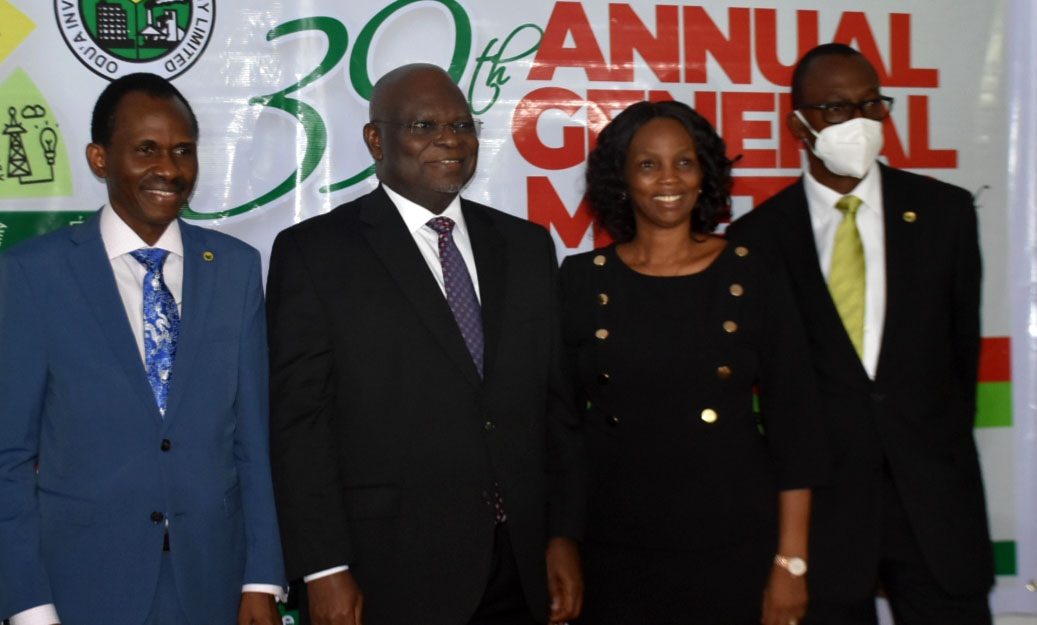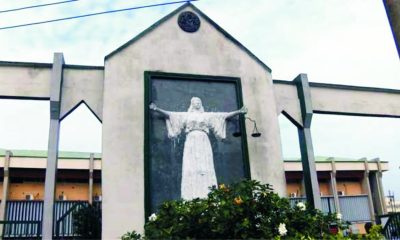Business
Debt Servicing Rises, Gulps 72% Of FG Revenue

Of the N3.25trillion made by the Federal Government as revenue in 2020, it spent N2.34trillion on debt servicing within the year.
This means that 72 per cent of the government’s revenue was spent on debt servicing.
This is according to a review of the budget performance of the 2020 Appropriation Act.
In 2019, the Federal Government made a total revenue of N3.86tn. Within the year, debt servicing gulped N2.11trillion. This puts the Federal Government’s debt servicing to revenue ratio in 2019 at 54.66 per cent.
This means that between 2019 and 2020, the Federal Government’s debt servicing to revenue ratio jumped from 54.66 per cent to 72 per cent.
As of March 31, the Debt Management Office (DMO) put Nigeria’s total debt at N33.11tn. Out of this figure, N20.64trillionn (62.33 per cent) was owed to domestic creditors, while N12.47trillion (37.67 per cent) was owed to foreign creditors.
Of the domestic debt profile, N16.51tn belong to the Federal Government while N4.12tn belong to the 36 states of the federation and the Federal CapitalTerritory Administration.
The N12.47tn foreign debt was not broken into federal and subnational segments. However, historically, about 86 per cent of Nigeria’s foreign debt usually belong to the Federal Government.
Although the Federal Government consistently argues that its debt to Gross Domestic Product is low, economists and experts say that it is better to use the debt servicing to revenue ratio to measure a country’s indebtedness.
This is because the debt servicing to revenue ratio measures a country’s capacity to repay its loans.
Although the Federal Government had projected a revenue of N5.84tn for 2020, actual revenue was N3.25tn. It also projected to spend N2.68tn on debt servicing.
As in the previous years, a greater percentage of the country’s revenues came from oil in 2020. Oil revenue contributed N1.41tn, non-oil sources contributed N1.26tn, while independent funding sources contributed N578.45bn.
In 2020, the Federal Government spent N3.17tn on personnel and overhead costs, two segments of the nation’s recurrent expenditure.
The government spent N1.57tn on capital expenditure. Total expenditure for the year was N9.75tn, with the nation borrowing a total of N2.06tn as domestic borrowing in the year.
In 2019, Nigeria made N3.86tn as revenue. Oil revenue contributed N1.620tn; non-oil revenue contributed N1.69tn, while independent funding contributed N547.270bn.
The Federal Government spent N2.37tn on overhead and personnel cost within the year and N1.17tn on capital expenditure. Total debt servicing gulped N2.11tn of government revenue. Total expenditure for the year was N8.29tn, and total borrowing was N912.82bn.
Business
NPA Assures On Staff Welfare
Business
ANLCA Chieftain Emerges FELCBA’s VP
Business
NSC, Police Boost Partnership On Port Enforcement
-
Rivers3 days ago
Rivers Pledges Support For Enhanced Maritime Security
-

 News3 days ago
News3 days agoRivers Remains Your Willing Partner For Enhanced Maritime Operations, Ibas Tells Navy
-

 News3 days ago
News3 days agoReps Probe Police Over Alleged ?6bn Contract Splitting, Asset Sales
-

 Niger Delta3 days ago
Niger Delta3 days agoRSNC Head Charges NAOMEW On Professionalism, Effective Service Delivery
-
Sports3 days ago
Give Rest Of ‘94 Eagles Their Houses – Amuneke
-

 News3 days ago
News3 days agoRivers High Court Judges Begin 2025 Vacation, July 21
-
Rivers3 days ago
Obalga SOLAD Presents Fire Extinguishers To Council …. Commiserates With traders over Rumuomasi Market Fire
-
Business3 days ago
NPA Assures On Staff Welfare

